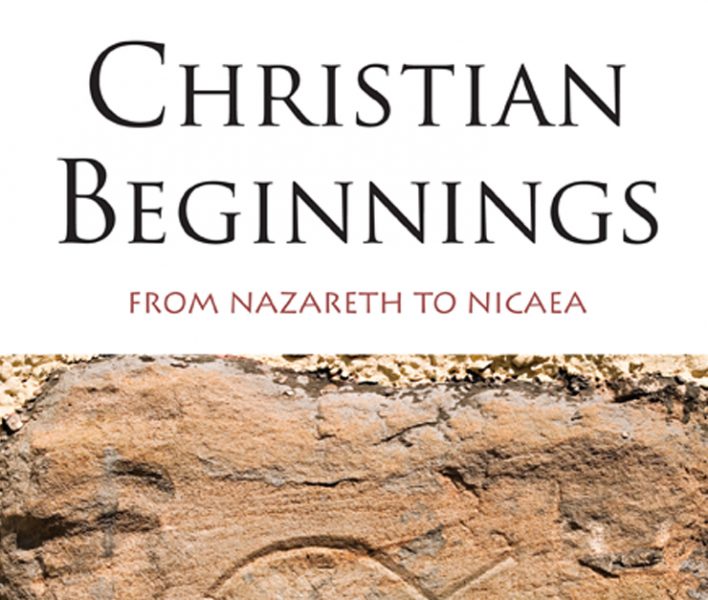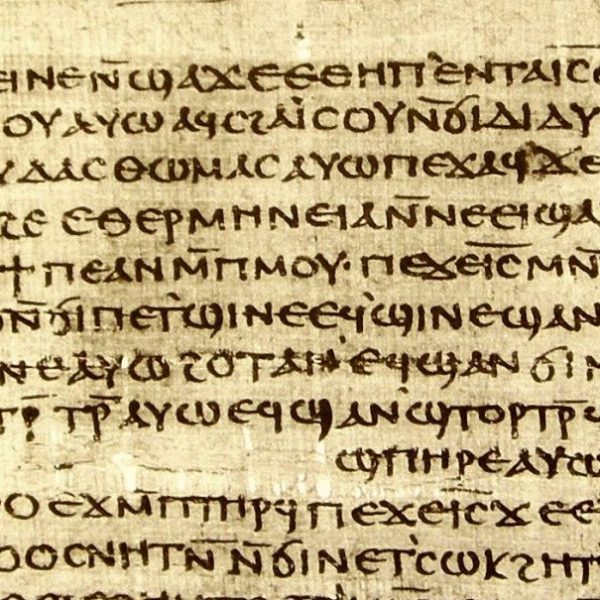Christian Beginnings
How did the historical, concrete Jesus become known as the Christ, the Son of God? How did the idea of this man develop? Forty years after he first entered the “Jesus field,” lauded academic Geza Vermes gives a narrative of that expansion from the embodied Jesus to the belief in his divinity that founded a new religion. With lucid and engaging prose, Christian Beginnings builds on Vermes’ distinguished career as a scholar in a volume that is accessible to those new to the field.
 Vermes focuses on the figure of Jesus in the context of charismatic Judaism, a term the author coined in 1973, which already held a particular understanding of a holy hero who performed miracles. His argument begins from these origins and culminates at the first council of Nicaea in 325 where Christianity became an officially creedal religion heavily influenced by Platonic thought which, according to Vermes, little resembles the historical Jesus.
Vermes focuses on the figure of Jesus in the context of charismatic Judaism, a term the author coined in 1973, which already held a particular understanding of a holy hero who performed miracles. His argument begins from these origins and culminates at the first council of Nicaea in 325 where Christianity became an officially creedal religion heavily influenced by Platonic thought which, according to Vermes, little resembles the historical Jesus.
Vermes starts the story of Christian Beginnings by describing the charismatic Judaism that predated Jesus of Nazareth, from Moses to later Rabbinic literature. He explores some Biblical accounts of spirits, ghosts and prophesy, such as the story of King Saul who consulted with a medium (since “finding wizards proved difficult”) to conjure up the spirit of the decease prophet Samuel. Through these examples Vermes lays out a precedent for prophetic, charismatic holy men who work miracles within the Jewish context.
By the time we reach Nicaea in the fourth century, the followers of Jesus have become the politically recognized church under Constantine. Amidst debate – and Vermes emphasizes the political and ecclesial thorniness involved — Christians formed doctrine over Jesus’ divine nature as the Son of God, part of a Triune God who freely became incarnate while retaining his divinity. “The theologians carried on to underplay the role of Jesus of Nazareth,” Vermes writes, “the itinerant preacher who in days long gone by was crisscrossing the rocky paths of Galilee, preaching the imminent arrival of the day of the Lord, and to overstress his shiny new identity as the consubstantial, co-eternal and coequal only Begotten Son of God the Father.”
You could never accuse this ancient history of being dry; fascinating debates emerge as communities wrestled with how to understand what this person of Jesus could mean. As Vermes moves to the early Christian period, he provides an account of the lively tensions emerging over his divine nature. Origen, the Church Father and theologian of the late 2nd and 3rd century, debates his opponent, the Greek Celsus on matters of Jesus’ divinity like the Virgin Birth and the resurrection. Celsus doubted the plausibility of the twelve uneducated disciples to convince multitudes of their message’s validity, and Origen replies with skepticism at Celsus’ ability to even count to twelve.
The broader question Vermes asks is, “How does the religion preached by the apostles relate to the Judaism of this period? And how does it compare with the religion proclaimed by Jesus?” Who or what is Jesus, or was Jesus, is at stake in this engrossing volume.





totally fascinating